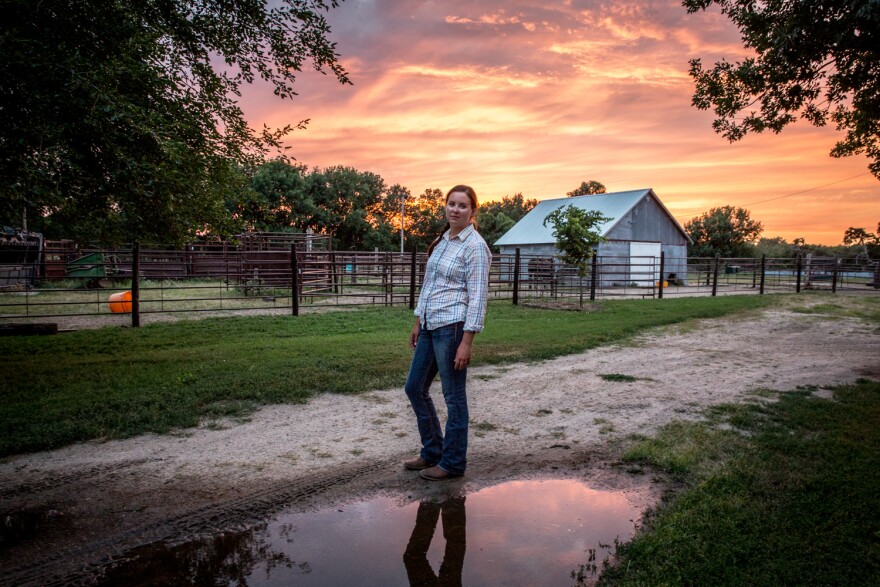US farmers up against it from shifting trade policies to a changing climate. We’ll look at the state of the US frontier now.
We know the picture book American family farm is sweeter in the book than in the field. Ag is a big, tough business. No farmer is immune to its tough demands. Nebraskan writer Ted Genoways went back to the farm to ask how all that’s working these days. He’s crafted a remarkable portrait of families in far flung fields, completely plugged in to the world. This hour, On Point: Tough issues down on the farm. Plus, we’ll analyze President Trump’s speech today at the United Nations in New York. — Tom Ashbrook.
Guests
Ted Genoways, author of “ This Blessed Earth: A Year In The Life Of An American Family Farm.” Editor-at-large for Pacific Standard Magazine. ( @TedGenoways)
From Tom’s Reading List
Smithsonian Magazine: How Agriculture Came to Be a Political Weapon—And What That Means for Farmers —”For Genoways, it’s time people realized the complexity of farming in a global system, where choices made by the government will have a direct impact on farmers and the food we eat. He hopes readers will come away from his book with that new appreciation. ‘What they do is incredibly valuable, and the heritage they represent is valuable, and we’re trying to preserve that way of life and make it sustainable,’ Genoways says.”
Popular Science: This Land Is (Still) Their Land. Meet The Nebraskan Farmers Fighting Keystone XL — “Keystone XL faces fierce public opposition, much of it centered in Nebraska, where farms and ranches (most of them family owned) make up 92 percent of the state’s land. If the Public Service Commission approves the pipeline, those who oppose it will have to give TransCanada access to their property under eminent domain, which is the power of the government to take private land and convert it for public use. This is another point of contention, with some arguing that the state has the right to take the land, while others contend that giving a private company access to private lands isn’t exactly public use.”
Reuters: Mexico Mulls Pork As Response To U.S. NAFTA Produce Proposal — “One suggestion U.S. negotiators raised prior to the first round of talks in Washington last month was to protect certain products by making it easier for U.S. seasonal produce growers to launch anti-dumping cases against Mexico, the people said, citing a presentation made by Mexican officials after the Washington talks. Mexico is looking at creating its own list, that might include pork, in case Washington formally proposes to give seasonal fruit and vegetable farmers added protection, the people briefed on the matter said.”
Read An Excerpt From This Blessed Earth: A Year in the Life of an American Family Farm
Excerpted from This Blessed Earth: A Year in the Life of an American Family Farm by Ted Genoways. Copyright @ 2017 by Ted Genoways. Reprinted with permission of W.W. Norton & Company, Inc. All rights reserved.
Copyright 2020 NPR. To see more, visit https://www.npr.org. 9(MDAwMTM1NDgzMDEyMzg2MDcwMzJjODJiYQ004))


